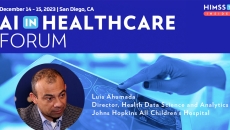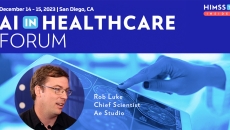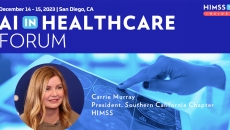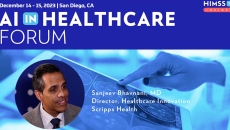AI
Despite the hype, this buzzing AI will still have to prove its worth for Asia's cautious hospitals, says one health tech vendor.
TenAces will develop an AI platform to help identify protein interactions that naturally occur in the body to assist with targeted protein degradation.
Johns Hopkins has been moving into AI to create datasets and data models, says Luis Ahumada, director of health data science and analytics at Johns Hopkins All Children’s Hospital. Data collection and validation have been incremental.
Rob Luke, chief scientist at Ae Studio, discusses how the company uses artificial intelligence internally for generating code, brainstorming ideas and helping its clients summarize data, process audio and interpret reports.
Also, mental health platform Amaha, formerly InnerHour, has received $6 million in additional Series A funding for its expansion.
As AI use within healthcare advances, several factors need to be considered, from how the tech can enhance care delivery to potentially worsening healthcare inequity.
The content was very relevant and what healthcare leaders and chapter members are interested in, said Carrie Murray, president of HIMSS Southern California chapter of HIMSS AI Forum. Everybody wants education on artificial intelligence.
Jeremy Petch, Hamilton Health Sciences' director of digital health innovation, discusses black box models and the importance of evaluating AI technology so as not to increase health inequity.
Dr. Sanjeev Bhavnani, Scripps Health executive director of healthcare innovation, discusses applying AI and machine learning in clinical care – and barriers to progress toward development around clinical adoption, including FDA policy.








